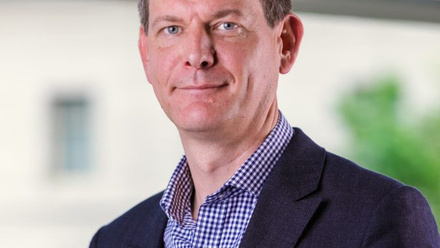Research: complacency in the reward and benefits arena is not an option

The international benefits landscape has continued to see an alignment of policies and greater harmonisation of HR practices. International firms are regularly announcing new global initiatives, be it new parental policies or introducing global pay systems that can manage currency fluctuations and varying local legislation.
Globalisation is the aim for many businesses. Not only does it bring efficiency and cost savings, but it also ensures a consistent employee experience, regardless of where an employee is based.
In its Big HR Tech Disconnect research, Thomsons Online Benefits suggests that “in the coming years we can expect to see greater investment in technology to deliver a ‘globally consistent employee experience’, as well as tech innovations to create a truly integrated, connected and holistic global ecosystem”.
In fact, the idea of a globally consistent employee experience was the top operational objective for employers, with 74% stating this as a goal.
Attracting talent
A key reason for wanting to achieve a consistent experience boils down to attracting talent. In our video interview with Nick Burns, CEO of Gallagher, he highlighted that the main thing keeping leaders awake at night was talent attraction and retention. And what is clear from the latest research is that skills shortages are a global issue.
Willis Towers Watson’s Benefit Trends Survey found that, although the make-up of organisation’s benefits portfolio is set to remain a priority, the talent experience topped the agenda for the coming three years with almost three-quarters (72%) of businesses planning to focus on effective benefits engagement and delivery.
The report notes: “Indeed, the importance of this [talent experience] should not be underestimated in the bid to attract and retain talent”.
All of this feeds into the employee experience. We often talk about creating ‘consumer-grade’ employee benefits that enable employees to interact with their benefits as easily as they do in a consumer setting. This is now beginning to happen, particularly as organisations adopt more technology – the Benefit Trends Survey found that 70% of organisations are now set to prioritise their focus on online portals or apps, while two-thirds (66%) will implement or enhance employee self-service.
Coupled with this is the need to improve employee communications – 83% of businesses are looking to enhance the communication of benefits to employees.
A global purpose
The idea of a great employee experience is followed up in O.C. Tanner’s 2020 Global Culture Report. It finds that, “a poor employee experience makes an employee feel disengaged, cynical, and disgruntled. A great employee experience is filled with meaningful interactions that help employees become connected, feel inspired, and thrive”.
Key to this experience was the idea of having a purpose. The research noted that people long to connect to something bigger and more important than themselves. It found five specific elements that businesses can utilise to maximise its effect: clarity, positive effect, differentiation, inspiring toward a collective goal and motivation.
However, only 66 percent of employees worldwide feel a sense of purpose from their organisation. The report noted that the ‘why’ of organisational existence – its purpose – should be continually communicated, seen, and heard by all members of the company.
Whatever your international reward and employee benefit goals, it is clear that there is no room for complacency and that there is still much to be done to continue to engage employees and win the war for talent.
The author is Dawn Lewis, content editor at REBA.






